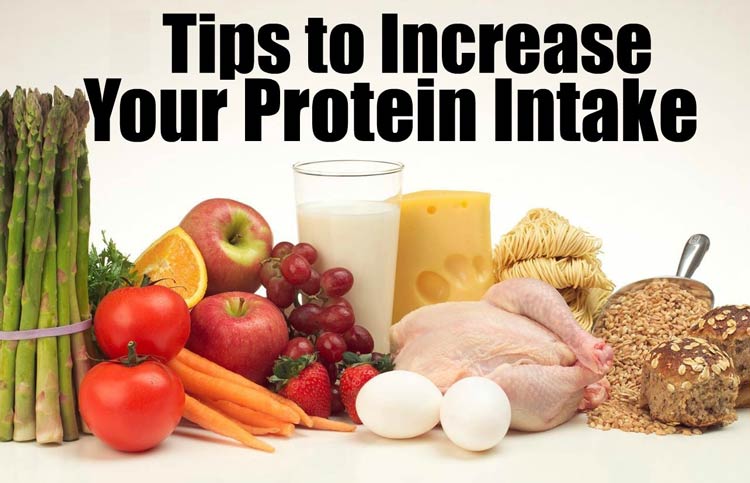
Please choose a body region on the right for you to pin point the problem area of your body.

Shop by Condition

Shop by Brand
Knowing the importance of protein in our diet is the first step towards a healthier lifestyle. However, implementing changes to increase protein intake can seem daunting. Fear not, as this article will guide you through four simple and effective ways to incorporate more protein into your daily diet. These suggestions are practical, easy to implement, and can greatly benefit your overall health.

The first and most straightforward way to ensure you're getting enough protein is to consciously include protein-rich foods in every meal. This does not necessarily mean you need to start consuming large quantities of meat. Many plant-based foods are rich in protein too, such as lentils, chickpeas, tofu, and quinoa.
For breakfast, consider having Greek yogurt with a sprinkle of chia seeds or a smoothie with protein powder. For lunch, opt for a salad with grilled chicken or a quinoa salad with mixed vegetables. Dinner can include fish or tofu with a side of beans. By consciously making these choices, you will naturally increase your protein intake without making drastic changes to your eating habits.
When you're feeling peckish between meals, it's easy to reach for a bag of chips or a chocolate bar. However, these snacks often contain minimal nutritional value. Instead, consider protein-rich snacks that will not only satisfy your hunger but also contribute to your daily protein target.
Examples of such snacks include a handful of nuts, Greek yogurt, or a protein bar. Opting for these choices can significantly increase your protein intake over time. Furthermore, protein can help keep you feeling full for longer, reducing the likelihood of overeating.
If you're finding it hard to meet your protein needs through food alone, protein supplements can be a viable option. These supplements come in various forms, including powders, shakes, and bars. They can be particularly beneficial for individuals with dietary restrictions or those who have higher protein needs due to factors like intense physical activity or recovery from illness.
However, remember that supplements should not replace a balanced diet. It's always better to obtain nutrients from whole foods when possible. If you decide to use protein supplements, make sure to consult with your healthcare provider first.
In the age of technology, various home healthcare products can help monitor your nutritional intake and ensure you're meeting your dietary needs. For example, nutrition tracking apps can provide detailed insights into your protein consumption and highlight if you're falling short.
If you are unable to consume sufficient protein through your diet, consider protein-enriched home healthcare products. These can range from high-protein meal replacements to protein-enriched snacks. However, as always, these should be used in conjunction with a balanced diet and not as a complete substitute.
In conclusion, increasing your protein intake does not have to be a complicated process. By making conscious food choices, opting for protein-rich snacks, considering protein supplements, and leveraging home healthcare products, you can effectively and conveniently boost your protein consumption. As always, before making significant changes to your diet, consult with your healthcare provider. After all, proper nutrition is a cornerstone of good health and wellbeing.
| Stay Connected! |
Related Articles
Get $10 off your next order when you sign up to receive our email newsletter.*
Simply enter your email address below!
*Minimum order value of $100. Valid email address to qualify.







